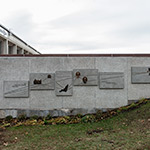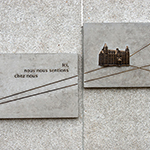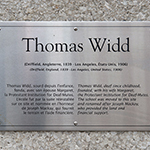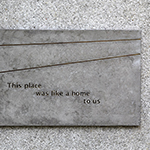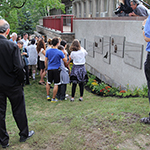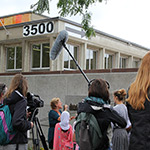Thomas Widd's Lost Story
The Lost Stories project collects little known stories about the Canadian past from across the country.
For the initial episode, made possible by support from the Pierre Elliott Trudeau Foundation, a call was put out to Montrealers using a wide array of media. We received roughly forty story proposals, from which we selected that of Thomas Widd, a deaf man who was the founder in the late-nineteenth century of Montreal's Mackay School for the Deaf. We received Thomas Widd's story from Janet McConnell, a retired teacher at the school, both of whose parents were deaf (although she is not). When Montreal businessman, Joseph Mackay, provided the land and the money for the school, Widd's name -- and his story -- were literally "lost."

